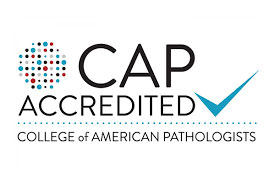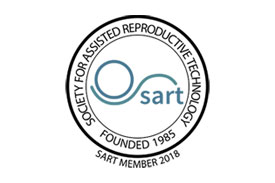If you're unable to have a child with your own gametes (eggs or sperm), you may consider using eggs or sperm from gamete banks or from egg donors.
Moreover, if you cannot carry a pregnancy, the utilization of gestational carriers offers an alternative option. This entire set of options is known as third-party reproduction, which uses the eggs or sperm, purchased (or sometimes donated) from someone else to allow an infertile person or couple to become parents. Finally, another procedure that is also considered third-party reproduction is called embryo donation, whereby excess embryo(s) no longer needed by a couple or individual are made available for donation.
When the number or quality of your eggs doesn't allow you to become pregnant, you can consider the use of a donor egg — an egg from another woman that will be fertilized with the sperm of your partner or with the sperm of a donor using in-vitro fertilization (IVF).
Donor eggs can be obtained from someone you know (so-called known donation) or from someone that you do not know (so-called anonymous donation). In both instances, the donor will go through a comprehensive set of fertility testing, psychological evaluation, and IVF procedure to retrieve the eggs. Alternatively, donor eggs can be purchased through an egg bank, which we help you coordinate.
Once you have chosen the donor and purchased the frozen eggs from the bank, they will be shipped to our center and used for your fertility treatment. The resulting embryo is transferred into your uterus, allowing you to carry the pregnancy.
When a man has no sperm, it is possible to use donor sperm from sperm banks. We will provide the information necessary for you to contact any of the various sperm banks (names of sperm banks) so that you make the choice of donor sperm.
If you are unable to carry a baby, you can consider the use of a gestational carrier (also called a gestational surrogate) — a woman who agrees to have a fertilized egg (embryo) implanted in her uterus. The gestational carrier will not be genetically related to the child, but she will carry the pregnancy for you, and, depending on in which state the delivery will take place, your name may be on the birth certificate, or you may need to adopt your child.
Our fertility team makes sure you understand all your options and have the information you need to make an informed choice. We offer guidance, support, and expert care every step of the way. You work with a team you can count on to make your experience as worry-free and rewarding as possible.
Who is a Candidate?
You may consider using donor eggs if you have been diagnosed with very low ovarian reserve or if you are menopausal or if your eggs have poor quality, or if you have complex, not testable, genetic diseases (for example, mitochondrial mutations, high risk for unbalanced translocations, etc.) and you don't want to pass on to a child.
You may choose to work with a surrogate if you don't have a uterus, if you have a medical condition that prevents you from carrying a pregnancy safely, or if you prefer someone else to carries a pregnancy. You may also choose a surrogate if you have a history of multiple miscarriages or IVF failure due to uterine factors.
We work closely with trusted, well-regarded egg and sperm banks that use rigorous screening to ensure egg donors meet the highest health standards. Testing includes a physical exam, genetic testing, psychological testing, and drug and infectious disease screening. You can choose from a variety of donors to ensure they are a good match for you and your family.
Learn more about the highly respected egg banks and sperm banks we work with:
- Fairfax Egg Bank
- Fairfax Cryobank
- World Egg Bank
- California Cryobank
- Xytex
Receiving Donor Eggs
We will take a complete health history from you and your partner and perform a comprehensive evaluation to make sure you are able to undergo the IVF procedures. Additionally, we work together with high-risk pregnancy colleagues to make sure you're prepared for a healthy pregnancy.
The donor eggs are fertilized with a procedure known as ICSI (intracytoplasmic sperm injection). Depending on your case, the resulting embryo(s) can either be transferred into the uterus (fresh embryo transfer) or they can be frozen for planning a future transfer (frozen embryo transfer).
Using a Gestational Carrier or Surrogate
We work closely with surrogacy agencies, psychologists, and attorneys to ensure couples are well-prepared for potential issues related to the use of gestational surrogacy. We help you in locating gestational surrogacy agencies so that they can help you to handle all of the legal details beforehand. Both gestational carriers and intended parents are tested for infectious diseases to ensure the health of the surrogate and the baby.
Once embryos have been obtained (either with your eggs and your husband/partner's sperm; or with a donor egg and your husband/partner's sperm), they will be frozen in preparation for a transfer into a gestational carrier. When your surrogate is ready, we use frozen embryo transfer to place it in her uterus, and she will carry the baby.
Donating Eggs
We perform extensive testing on egg donors to ensure their health before donation. We test for hepatitis, sexually transmitted diseases, and genetic diseases and perform other tests depending on the donor's health history and background.
To donate eggs, donors receive medicine to stimulate their ovaries to develop multiple eggs over a single cycle. Using a minimally invasive procedure, we insert a needle through the vagina and into the ovary to gently remove eggs.
Donating or Receiving Embryos
The IVF process often results in extra embryos that can be frozen and used later for future pregnancy attempts. At times, couples or patients that have no plan to use them can donate their embryo(s) to other couples or patients.
If you choose to use a donated embryo to become pregnant, your doctor will explain all the requirements necessary to use the donated frozen embryo(s).
Why Choose UHealth?
A comprehensive approach to fertility. Our closely-knit team of experienced professionals – including female and male fertility specialists, acupuncturists, and physicians with special expertise in polycystic ovarian syndrome (PCOS), thyroid disorders, endometriosis, and hormonal imbalances – work together to ensure the health of you and your baby.
High pregnancy rates. We have some of the highest pregnancy rates in not only South Florida, but in the entire United States. Our success stories include even the most challenging cases.
Academic medical center expertise. Faculty members at the Miller School of Medicine, a nationally recognized institution, currently conduct nearly 2,000 research projects in science and clinical care in a variety of fields. Our emphasis on research and innovation ensures you receive the most sophisticated diagnostic tests and advanced fertility treatments available.
Affordable fertility care. We offer cost-effective treatments and make the process as affordable as possible with our competitive pricing, view our financing options. Our center prides itself on integrity and we are dedicated to providing a transparent process. Your treatment options are clearly outlined and presented to you at the time of consultation. We provide financial consultations and will show you how our plans differ from what other centers in our area offer. We are committed to making sure you know what to expect upfront. We offer financing through Lending Club Patient Solutions. In addition, we do not bundle price for our in-vitro fertilization (IVF) cycles, which means if you get pregnant within one cycle, you will only be charged for that one cycle. If pregnancy does not occur in the first cycle, we provide discounts for second and third IVF cycles.
Questions? We're here to help.
Our appointment specialists are ready to help you find what you need. Contact us today.

